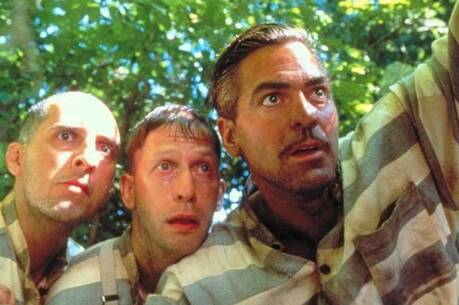‘The faith is Europe,” Hilaire Belloc claimed a century ago, “and Europe is the faith.” To say the same today might provoke laughter or confusion. When we think of Europe, is the first thing that comes to mind Christianity?
Now, quick—say the first word that pops into your head when you read the word after the colon: Africa.
Did you say Christianity, or did you say Ebola? Recent American news reports about Africa have been dominated by coverage of the latter. During 10 days I spent in Kenya in August, I saw far less reporting on the outbreak than I saw here in the United States. In providing background on Africa, our media tend toward the predictable, in which the entire continent is reduced to one place and culture, where disease, violence, corruption and tribalism reign supreme.
All of those plagues are real—just as they’re true more or less everywhere, and in some places more than others (ever taken a close look at New Jersey politics?). But they are hardly the whole story, or even the dominant narrative of most African societies.
My visit to Kenya was occasioned by the second of three annual conferences in Nairobi of the Theological Colloquium on Church, Religion and Society in Africa. I wear the hat of an editor, not a scholar, so I was there as an observer, witnessing firsthand an extraordinary level of intellectual ferment in African theological method and social analysis. The conference brought in scholars (including several Catholic bishops) from all over the continent and was conducted in a “palaver” style, where group dialogue is given greater emphasis than the American presenter-responder academic model. To call it an eye-opener is perhaps a tourist cliché (yes, I also went on safari), but I left Nairobi challenged to consider in new ways another notion that sometimes becomes a cliché: the global church.
The concept of a third world is passé, we were reminded, as are other Cold War-era distinctions between the West and the rest. Scholars spoke instead of a global South, one that has emerged from the shadow of the North and now presents its own vision(s) for society and Christianity as well. Note: has emerged, not is emerging. The pope is from the Global South, as was the Kenyan father of the U.S. president, as are almost 60 percent of Jesuit priests and brothers worldwide. Many of the scholars at the conference also either work now or once studied at universities in the United States and Europe. The times, they have a’changed.
The flowering of African Christianity was also impossible to miss, with frequent references to the explosive growth of Pentecostalism alongside still-growing mainline congregations and African Initiated Churches. The Catholic Church in Africa has more than tripled in size since 1965, and religious practice is dramatically higher than in the old bastions of the church. Christian denominations exist (sometimes uneasily) alongside expressions of Islam and traditional African religion. Churches play a prominent role in providing social services (in part because national structures are under-resourced) and are far more engaged socially and politically than their counterparts in Europe or the Americas.
I also came away with a distinct sense that a major contribution of African theology (if such a monolithic term is useful) to global Christianity on the academic level is its focus on the practical, the pastoral and the local. Many of the U.S. church’s problems are paralleled in Africa, including the familiar specters of clericalism, sexism and hidden sexual and financial scandals. I was struck, however, by the degree to which presenters made these and other societal ills (including environmental exploitation, compulsive consumerism and political corruption) the subject of academic theological reflection. We in the United States are often behind the curve in this type of theological analysis.
The temptation, of course, is to dismiss this theological ferment as the logical product of a young church not yet bedeviled by the materialism, secularization or malaise that often seem to mark much of contemporary Euro-American Christianity. But globalization is already a reality in Africa—Kenya’s impressive new highways, after all, are being built by Chinese companies using Chinese labor, and everyone has a smartphone—and religion does not seem to be beating a retreat. Might some future pundit turn Belloc’s now-quaint parochialism on its head, and note that “The faith is Africa, and Africa is the faith”?








